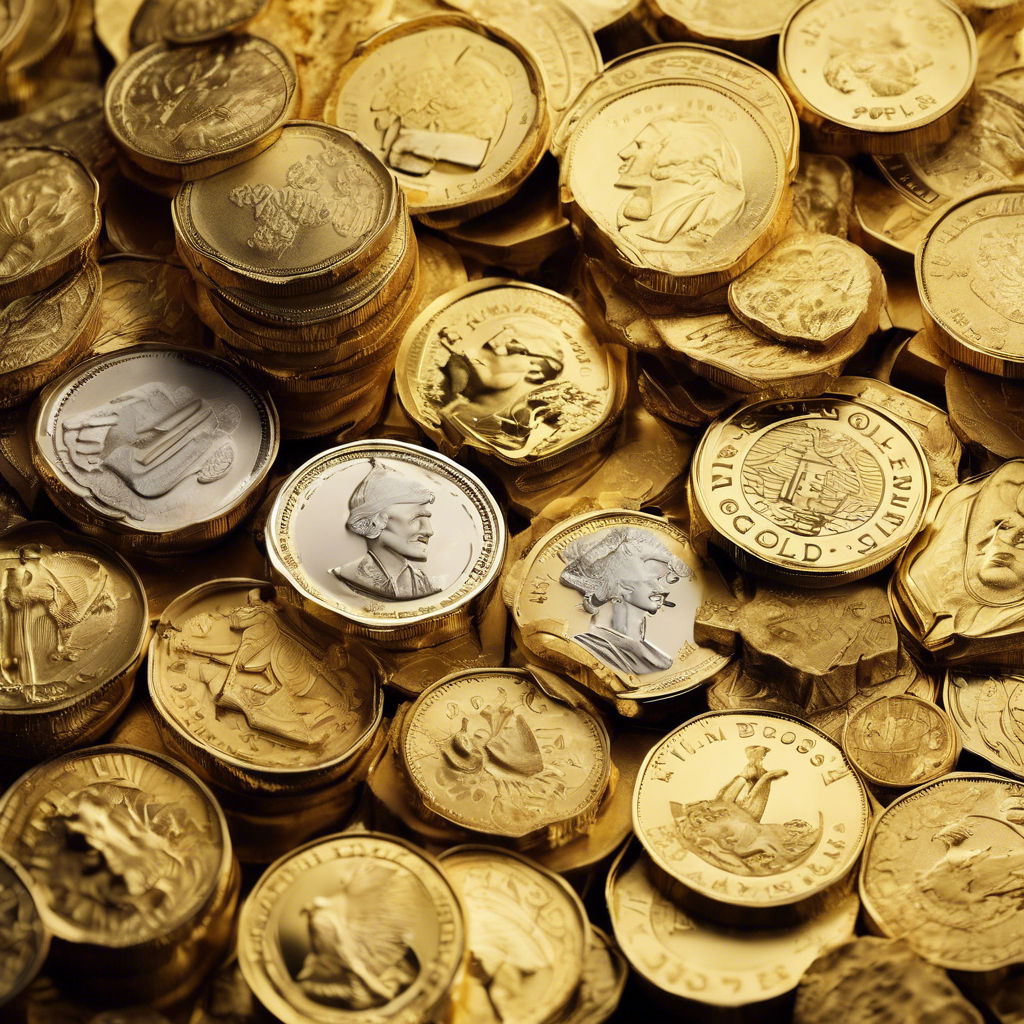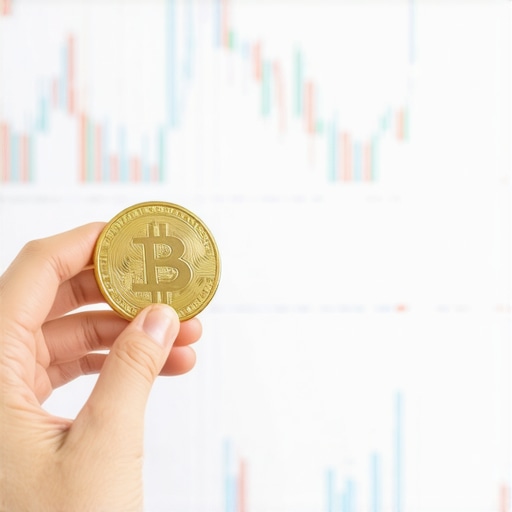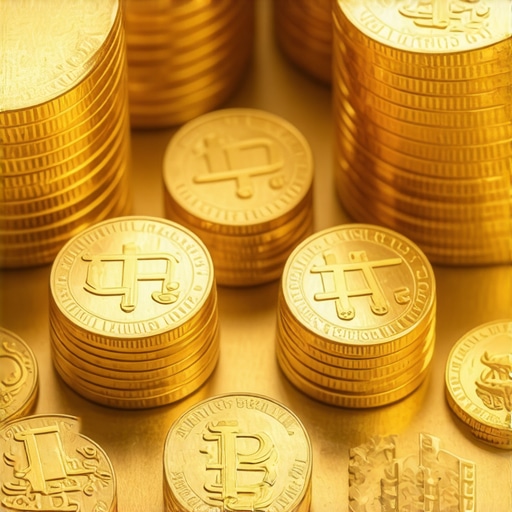Understanding Gold Coins as an Investment
Investing in gold coins can be a rewarding strategy for both new and experienced investors alike. Gold has long been viewed as a stable asset and a hedge against economic uncertainty. In times of market volatility, many turn to gold coins, not only for their intrinsic value but also for their historical significance and beauty. But with various options available, it can be challenging to determine which gold coins are worth investing in.
Factors to Consider When Investing in Gold Coins
Before diving into the types of gold coins available, it’s essential to understand several factors to consider when making your investment. First, assess the purity of the gold coin. Most investment-grade coins contain 91.67% gold (22 karats) or higher, ensuring you’re getting a valuable product. Popular coins like the American Gold Eagle and the Canadian Gold Maple Leaf typically have a purity of 24 karats.
Next, consider the market demand for specific coins. Some coins appreciate more than others based on collector interest and limited availability. For instance, rare coins or those with historical significance can fetch higher prices due to their desirability among collectors. Additionally, keep an eye on the gold market trends. Prices fluctuate based on various economic indicators, so staying informed can help you make strategic decisions.
Popular Gold Coins Worth Considering
When exploring options for investing in gold coins, several popular choices stand out:
- American Gold Eagle: This coin is one of the most widely recognized and trusted gold coins in the world. With a purity of 22 karats, it combines both value and historical significance.
- Canadian Gold Maple Leaf: Known for its exceptional purity of 24 karats, the Maple Leaf coin is another favorite among investors. Its design features the iconic maple leaf, symbolizing Canada.
- South African Krugerrand: The Krugerrand was the first gold coin to contain precisely one ounce of gold, making it a popular choice for investors looking to buy gold coins as a means of diversification.
- Austrian Gold Philharmonic: This coin is known for its beautiful design and is a solid choice for investors seeking quality and aesthetic appeal.
Each of these coins has unique characteristics that may suit various investment strategies. For example, if you prefer investing in highly liquid assets, the American Gold Eagle and Canadian Gold Maple Leaf are excellent options due to their global recognition.
As you navigate the world of gold investment, it’s crucial to conduct thorough research and consider your investment goals. Understanding the different types of gold coins and their value can help you make informed decisions that align with your financial objectives.
Understanding Gold Coin Value Appreciation
The value of gold coins can appreciate over time due to various factors. Understanding these factors is crucial for any investor looking to maximize returns. The historical significance of certain coins can play a significant role in their appreciation. For instance, coins minted during specific historical periods or those that were once used as currency may be more valuable due to collector interest.
Market Conditions Affecting Gold Coin Prices
Market conditions heavily influence the value of gold coins. During times of economic instability or inflation, investors often flock to gold as a safe-haven asset. Consequently, the demand for gold coins tends to rise, driving up their prices. Keeping an eye on gold price analysis can help you gauge when to buy or sell your coins for optimal profit.
Storage and Preservation of Gold Coins
Once you’ve invested in gold coins, proper storage and preservation become paramount. To maintain their value, consider investing in high-quality storage solutions. Using coin holders or capsules can protect them from physical damage and tarnishing. Additionally, storing your coins in a safe or safety deposit box will ensure they are safeguarded against theft or loss.
Tax Implications of Gold Coin Investments
Investing in gold coins also comes with tax considerations. In many regions, gold coins are subject to capital gains tax when sold for a profit. Understanding your local tax laws is essential to avoid unexpected tax liabilities. Consult with a tax professional to ensure compliance and to discuss strategies for minimizing your tax burden.
Long-Term vs. Short-Term Investment Strategies
When investing in gold coins, consider your investment strategy. Are you looking for a long-term hold, or do you plan to trade frequently? If you opt for long-term investments, gold coins can serve as a hedge against inflation and economic uncertainty. On the other hand, short-term trading may require more active monitoring of gold demand trends and market fluctuations.
Building a Balanced Gold Investment Portfolio
Incorporating gold coins into your overall investment portfolio can enhance its diversification. Alongside gold coins, consider investing in gold stocks and ETFs for a balanced approach. This strategy can mitigate risks while allowing you to capitalize on different market opportunities.
Final Thoughts on Investing in Gold Coins
In summary, investing in gold coins can be a smart choice for diversifying your portfolio and protecting your wealth. By understanding the factors that influence their value, market conditions, and the importance of preservation, you can navigate the gold market effectively. Whether you choose to invest in popular coins like the American Gold Eagle or the Canadian Gold Maple Leaf, always conduct thorough research and align your investment choices with your financial goals. For more detailed strategies, check out our guide on gold investment strategies for wealth preservation.
Effective Strategies for Selling Gold Coins
When it comes time to sell your gold coins, having a solid strategy can help you maximize your returns. Understanding the current market conditions is essential. Timing your sale during a market peak can significantly enhance your profits. Monitoring gold prices through resources like gold price analysis can provide insights into when to make your move.
Choosing the Right Selling Method
There are several methods to sell gold coins, each with its advantages and disadvantages. You can sell to local dealers, online marketplaces, or auction houses. Local dealers may offer immediate cash but might not provide the highest price. On the other hand, selling online could reach a broader audience, but it may take longer and involve shipping costs. Researching and comparing different selling methods can ensure you choose the best option for your situation.
Understanding Gold Coin Market Demand
The demand for specific gold coins can vary based on factors like rarity and condition. Keeping an eye on gold demand trends can help you understand which coins are currently popular among collectors and investors. Coins that are in high demand are likely to fetch better prices, so consider selling those first.
Preparing Your Gold Coins for Sale
Before selling your gold coins, it’s crucial to prepare them properly. Ensure they are clean and well-preserved to attract buyers. While it’s important to keep coins in good condition, avoid harsh cleaning methods that can scratch or damage them. If you have rare coins, getting them graded by a professional can help establish their value and authenticity, leading to a higher selling price.
Negotiating the Best Price for Gold Coins
Negotiation plays a vital role in selling gold coins. Being informed about the current gold prices and understanding the value of your coins can give you leverage in negotiations. Don’t hesitate to ask for a price that reflects the true value of your coins. If you’re selling to a dealer, it might be beneficial to visit multiple dealers to compare offers before making a decision.
Tax Considerations When Selling Gold Coins
Similar to buying, selling gold coins comes with tax implications. Many regions impose capital gains tax on profits from the sale of precious metals. Understanding your local tax laws is essential to avoid unexpected financial burdens. Consulting with a tax professional can help you navigate these considerations and potentially minimize your tax liabilities.
Using Proceeds Wisely After Selling
Once you successfully sell your gold coins, it’s important to consider how to use your proceeds wisely. Reinvesting in other forms of precious metals or diversifying into other investment types, such as gold stocks or ETFs, can provide opportunities for growth and security. Moreover, keeping an eye on gold price forecasts can guide your next investment choices.
Final Thoughts on Selling Gold Coins
In conclusion, selling gold coins can be a profitable venture if approached strategically. By understanding market conditions, choosing the right selling method, and preparing your coins adequately, you can enhance your selling experience. Always stay informed about demand trends and tax implications to make informed decisions. Whether you’re transitioning to other investments or cashing out for immediate needs, a well-executed selling strategy can yield significant returns.
Understanding the Gold Coin Market
To effectively sell your gold coins, it’s essential to have a comprehensive understanding of the gold coin market. This includes knowing not just the current gold prices, but also the various types of gold coins available, their historical significance, and their appeal to collectors. Different coins hold varying levels of value based on factors such as rarity, demand, and condition. For instance, coins like the American Gold Eagle or the Canadian Gold Maple Leaf tend to be more recognized and may sell for a premium compared to lesser-known coins.
Researching Market Trends
Before listing your gold coins for sale, conducting thorough research on market trends is crucial. Analyzing gold price analysis and monitoring changes in demand can provide valuable insights. Websites and forums dedicated to gold investing can also be excellent resources for gauging public interest in specific coins. Staying informed about broader economic indicators that influence gold prices can further enhance your selling strategy.
Establishing the Right Price
Setting the right price for your gold coins is a critical step that can make or break a sale. Consider factors such as the demand for gold coins, the condition of your coins, and the prices of similar items on the market. Utilizing tools like online calculators that factor in gold content and current market rates can help you arrive at a competitive price. Remember, overpricing can deter potential buyers, while underpricing can lead to losses.
Utilizing Online Marketplaces
In today’s digital age, online marketplaces offer an excellent platform for selling gold coins. Websites like eBay, specialized gold trading sites, and auction platforms can connect you with a global audience. When using these platforms, make sure to create detailed listings with high-quality images and accurate descriptions to attract buyers.
Ensuring Security in Transactions
Safety should be a top priority when selling gold coins online. Always opt for secure payment methods and consider using an escrow service to protect against fraud. It’s also wise to check the buyer’s feedback and ratings to ensure they have a positive history of transactions. This will help you avoid potential scams and ensure a smoother selling process.
Networking with Other Sellers and Collectors
Networking can play a significant role in selling your gold coins successfully. Joining local or online coin clubs and forums can help you connect with other collectors and sellers. These networks can provide valuable advice, share tips on market conditions, and even lead to potential buyers. You may also want to attend coin shows where you can meet other enthusiasts, display your coins, and negotiate deals in person.
Leveraging Social Media for Sales
Social media platforms like Facebook, Instagram, and Twitter can be powerful tools for selling your gold coins. Creating posts that showcase your coins, along with engaging content about their history and value, can attract potential buyers. Additionally, consider joining groups specifically dedicated to gold and coin trading where you can share your listings and connect with interested parties.
Creating an Effective Sales Pitch
When marketing your gold coins, having a compelling sales pitch can make a significant difference. Highlight the unique features of your coins, including their historical significance, condition, and any special attributes that may appeal to collectors. Providing potential buyers with ample information not only builds trust but also enhances the perceived value of your coins.
Conclusion: Mastering Gold Coin Sales
In conclusion, selling gold coins is a multifaceted process that requires careful planning, research, and execution. By understanding market trends, preparing your coins for sale, and utilizing effective selling strategies, you can maximize your profits. Whether you choose to sell through local dealers, online marketplaces, or auctions, being knowledgeable and strategic will significantly improve your chances of achieving a successful sale. Remember to consider your options wisely, stay informed about gold price forecasts, and maintain a strong network within the gold investing community. With the right approach, selling your gold coins can be a rewarding experience that contributes positively to your investment journey.
Frequently Asked Questions About Selling Gold Coins
What are the best platforms to sell gold coins?
When it comes to selling gold coins, popular platforms include eBay, online gold trading sites, and auction houses. Each platform has its advantages, such as a large audience or specialized coin collector communities. Choose the one that best fits your needs and target audience.
How do I determine the value of my gold coins?
To determine the value of your gold coins, consider factors such as the current gold price, coin rarity, demand, and condition. Professional appraisers or online valuation tools can provide accurate assessments, ensuring you price your coins competitively.
Are there any risks associated with selling gold coins online?
Yes, there are risks when selling gold coins online, including potential scams or fraudulent buyers. To mitigate these risks, use secure payment methods, check buyer feedback, and consider using escrow services to protect your transaction.
What should I include in my gold coin listings?
Your gold coin listings should include high-quality images, detailed descriptions, and relevant information about the coin’s condition, rarity, and historical significance. The more information you provide, the more trustworthy and appealing your listing will be to potential buyers.
How can I protect my gold coins during shipping?
To protect your gold coins during shipping, use sturdy packaging materials, such as bubble wrap and padded envelopes. Opt for insured shipping methods and provide tracking information to ensure safe delivery and peace of mind for both you and the buyer.
What are the tax implications of selling gold coins?
When selling gold coins, you may be subject to capital gains tax on the profits from the sale. It’s essential to keep accurate records of your purchases and sales for tax reporting purposes. Consult a tax professional for guidance on your specific situation.
How can I improve my sales pitch for gold coins?
To enhance your sales pitch, focus on the unique attributes of your coins, including their historical significance, condition, and any special features. Engaging storytelling about the coin’s background can also help captivate potential buyers.
What types of gold coins are most popular among collectors?
Popular gold coins among collectors include the American Gold Eagle, Canadian Gold Maple Leaf, and South African Krugerrand. These coins are well-known for their quality and investment potential, making them sought after by both collectors and investors.
How can I stay updated on gold market trends?
To stay informed about gold market trends, follow reputable financial news sources, subscribe to newsletters, and participate in online forums dedicated to gold investing. Monitoring these resources can help you make informed decisions when buying or selling gold coins.
Conclusion: Strategies for Successful Gold Coin Sales
In summary, selling gold coins can be a rewarding endeavor if approached with the right strategies and knowledge. By understanding the gold coin market, leveraging online platforms, and utilizing effective selling techniques, you can maximize your profits. Additionally, staying informed about market trends and building a strong network within the gold community will enhance your selling experience. As you embark on your journey of selling gold coins, remember to prioritize safety, provide thorough information to potential buyers, and remain adaptable to changing market conditions. With careful planning and execution, you can successfully navigate the world of gold coin sales and achieve your financial goals.










